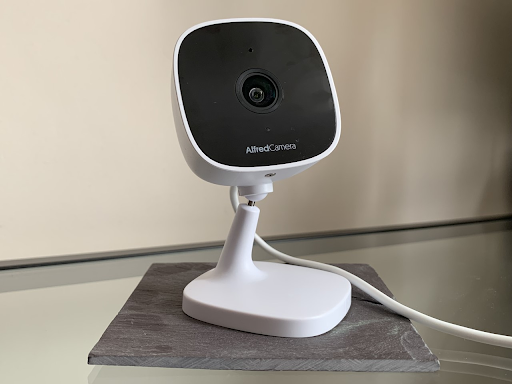Unplugging a security camera stops it from recording and transmitting data. It also disconnects it from any power source.
In today’s digitally driven world, security cameras play a pivotal role in safeguarding our homes and workplaces. These devices not only deter potential intruders but also provide crucial evidence in the event of a security breach. Understanding the implications of unplugging a security camera is essential.
It immediately ceases all monitoring and recording activities, leaving a property vulnerable. This act can also disrupt the continuity of any security footage, potentially hindering future investigations. Homeowners and businesses alike rely on these cameras for peace of mind and security, making it vital to consider the consequences before disconnecting them.
Introduction To Security Cameras And Privacy
Security cameras serve as crucial tools in modern surveillance, offering protection and peace of mind. They help monitor spaces and can deter crime. Yet, they stir up privacy debates. Understanding the balance between security and privacy is key.
Why People Use Security Cameras
- Crime deterrence: Visible cameras can scare off potential criminals.
- Monitoring: Keep an eye on homes, businesses, and public areas.
- Evidence collection: Recordings aid in investigations and legal cases.
- Peace of mind: Check on loved ones or property anytime.
Privacy Concerns With Security Cameras
While cameras boost security, they can invade privacy. People might feel watched. Recorded footage could fall into the wrong hands. Ensuring responsible use is essential.
| Concern | Explanation |
|---|---|
| Personal privacy | Cameras may capture activities in private spaces. |
| Data security | Stored footage can be hacked or misused. |
| Consent | Individuals might be recorded without agreement. |
| Trust | Over-surveillance can erode trust among people. |

Credit: www.reddit.com
Immediate Effects Of Unplugging A Security Camera
Understanding the immediate effects of unplugging a security camera is crucial. These effects can compromise both safety and security. Let’s delve into what happens the moment a camera goes offline.
Loss Of Live Monitoring
Real-time surveillance stops. Users cannot observe what’s happening. This could lead to missed incidents. Homes and businesses remain unwatched. Potential threats may go undetected. Immediate response to situations becomes impossible.
Interruption In Recording
Continuous footage capture halts. No new video gets saved. Reviewing footage for evidence is not possible. Gaps in recording may occur. This can affect later investigations. Unplugging a camera can erase recent data if not backed up.
Security Risks Associated With Disabling Cameras
Disabling security cameras can lead to significant risks. It makes homes and businesses more inviting to criminals. Let’s dive into the specific hazards that come with unplugging these devices.
Vulnerability To Theft And Vandalism
Security cameras act as a deterrent for criminals. Without them, properties are exposed. Criminals look for easy targets. An unmonitored area is perfect for them. Here are key points of vulnerability:
- Visible absence of surveillance can attract thieves.
- Vandals may act without fear of being caught on camera.
- Security system integrity is compromised.
These points highlight the dangers of an unsecured space.
Gaps In Security Footage
Continuous recording is essential for incident reviews. Unplugging cameras creates footage gaps. These gaps can:
- Prevent capturing crucial evidence during incidents.
- Make it difficult to identify culprits or track their movements.
- Result in loss of valuable information for law enforcement.
Consistent footage is key for a safe environment.
Technical Implications For The Camera System
Let’s dive into the Technical Implications for the Camera System after unplugging a security camera. Unplugging can lead to unexpected issues.
Potential Data Corruption
Unplugging a security camera can cause data corruption. This means the camera’s saved videos may get damaged. Here are key points:
- Video loss: Recorded videos might disappear.
- File damage: Saved files can become unusable.
- Recording gaps: Missing footage from the record history.
Prevent data corruption by safely shutting down the camera first.
Reboot And Recovery Issues
Unplugging also affects the camera’s ability to reboot and recover. Consider these factors:
- Reboot delay: The camera may take longer to start again.
- Settings reset: Custom settings might return to defaults.
- Recovery challenges: The system could struggle to recover lost data.
To avoid these issues, ensure a proper shutdown before unplugging.
Legal And Ethical Considerations
Understanding the legal and ethical considerations is crucial before unplugging a security camera. It’s not just about the immediate effects on security but also about respecting laws and ethics. This section explores key aspects to consider.
Consent And Notification Requirements
Consent is vital in the use of security cameras. Laws often require informing individuals about surveillance. This notification helps in maintaining transparency and trust.
- Public areas may have different rules compared to private spaces.
- Workplaces should inform employees about surveillance for security purposes.
- Recording in sensitive areas without clear consent can lead to legal issues.
Always check local laws for specific notification requirements.
Liability For Security Lapses
Unplugging a security camera can have serious consequences. It can create security lapses.
| Effect | Consequence |
|---|---|
| Lesser surveillance | Potential increase in theft or vandalism |
| Gap in security footage | Difficulties in legal investigations |
Owners may face liability issues for any harm resulting from these lapses.

Credit: alfred.camera
Impact On Insurance Claims
The security of your home or business intertwines closely with insurance matters. Unplugging a security camera can have unexpected consequences. Let’s explore the effects on insurance claims.
Proof Of Incident
Insurance claims often rely on concrete evidence. Security cameras provide crucial footage of incidents. This footage can prove the occurrence and details of an event.
- Unplugged cameras leave a gap in recording.
- No video means no visual proof for insurers.
- Claims may be harder to support without evidence.
Insurance Premiums And Claims
Insurers may offer lower premiums for monitored properties. Constant surveillance suggests a lower risk of undetected incidents.
| Camera Status | Impact on Premiums | Impact on Claims |
|---|---|---|
| Active | Potential for discounts | Smooth claims process |
| Unplugged | Risk of higher costs | Challenges in approval |
Security cameras are assets. They encourage prompt claim resolutions. Without them, insurers may be skeptical. This could lead to increased premiums or denied claims.
Alternative Solutions To Unplugging
Concerned about your security camera’s privacy? Unplugging isn’t your only choice. Explore these smart alternatives to maintain control without losing protection.
Using Privacy Modes
Modern security cameras offer privacy modes. This feature disables recording at your command. Simply activate this mode through your camera’s app. Your privacy stays intact without any power loss.
Scheduled Recording
Set up a recording schedule that fits your routine. Your camera will only record during chosen times. This ensures privacy when needed and security when away. No manual unplugging required.
Best Practices For Managing Security Cameras
Security cameras are key in keeping spaces safe. Smart handling is crucial for their effectiveness. Let’s explore best practices for managing these devices.
Regular Maintenance
Regular checks keep cameras working well. Dust and debris can block lenses. This reduces image quality.
Follow these steps for upkeep:
- Clean lenses gently with a soft cloth.
- Check for software updates monthly.
- Ensure power sources are stable and secure.
- Test backup batteries often.
Understanding Camera Features
Know your camera’s capabilities. Modern units have advanced features. Motion detection and night vision are common.
Essential features include:
| Feature | Benefit |
|---|---|
| High Resolution | Clearer images |
| Wi-Fi Connectivity | Remote access |
| Weatherproof | Outdoor durability |
Understanding these helps in effective management.
Conclusion: Balancing Security And Privacy
Ensuring safety while respecting privacy is essential. Unplugging security cameras impacts this balance. Users must understand the consequences. This section covers key considerations for maintaining equilibrium.
Making Informed Decisions
Knowledge is power in the realm of home security. Homeowners should assess their security needs. Consider potential risks before unplugging cameras. Weigh the pros and cons. Understand the security gap created by disconnection.
- Assess security needs and risks.
- Understand camera functionality.
- Evaluate privacy concerns.
Future Of Home Security
Home security technology is advancing rapidly. Expect smarter, privacy-focused solutions. Balance will become easier with new innovations. Users can look forward to:
| Feature | Benefit |
|---|---|
| Enhanced Encryption | Improved privacy |
| AI Integration | Targeted alerts, fewer false alarms |
| Geofencing | Automatic adjustments for privacy |

Credit: cctvinstallation-losangeles.com
Frequently Asked Questions
Will Unplugging A Security Camera Cause Damage?
Unplugging a security camera generally doesn’t cause physical damage, but it may disrupt its functionality and recording capabilities until reconnected.
Does Unplugging Affect Camera Data Storage?
Data storage is not affected by unplugging; however, cameras will stop recording, potentially leading to loss of critical footage during the disconnected period.
Can Unplugging Stop A Camera From Working?
Temporarily, yes. Unplugging a security camera will stop it from working, but normal operation should resume once it’s plugged back in and reconnected to the network.
Is It Safe To Unplug Security Cameras Regularly?
Regular unplugging is not recommended as it can lead to missed recordings and may reduce the lifespan of the camera’s power components over time.
What Happens To Recorded Footage When Unplugged?
Recorded footage remains saved on the camera’s storage or cloud until overwritten or deleted; unplugging doesn’t erase existing data.
Conclusion
Unplugging a security camera might seem like a quick fix, but it’s a temporary measure. Remember, consistent surveillance is key to safety. Before disconnecting, consider the risks and consult a professional. Keep your security system intact for peace of mind.
Stay safe, stay connected.





